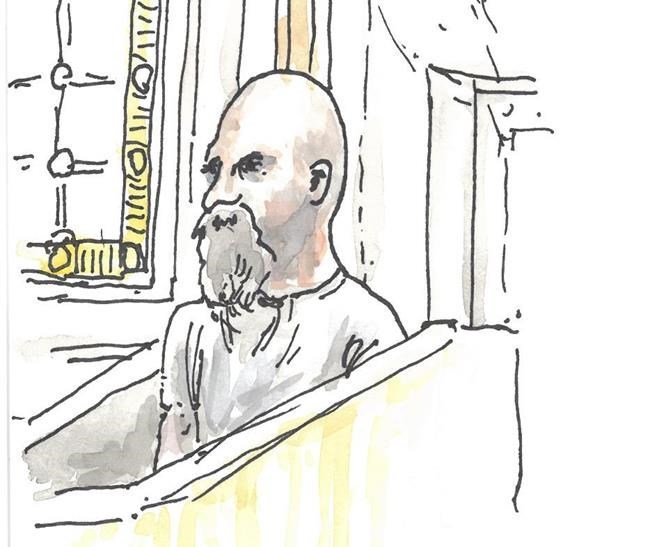WINNIPEG — Family of one of four women who died at the hands of an accused serial killer said they were shocked Monday to hear him admit to the slayings ahead of the start of his trial.
They warned the fight is far from over.
"This man has killed four of our women, and he will be held responsible," Melissa Robinson, a cousin of Morgan Harris, told reporters outside court.
"It's been all about justice for my cousin, and we're going to get it."
Jeremy Skibicki, 37, previously pleaded not guilty to four counts of first-degree murder in the 2022 deaths of Harris, Rebecca Contois, Marcedes Myran and a fourth unidentified woman Indigenous leaders have named Mashkode Bizhiki'ikwe, or Buffalo Woman.
Skibicki, his feet shackled, sat silently in the prisoner’s box as his lawyers told Court of King's Bench Chief Justice Glenn Joyal that their client killed the four women but should be found not criminally responsible due to an unspecified mental disorder.
Skibicki's admission comes in a case that has already seen twist and turns.
Jurors were selected in late April but last week, before they were to begin hearing evidence, Skibicki's lawyers renewed a motion to have the judge dismiss the jury and hear the case himself.
They argued significant pretrial publicity could impact the jury's ability to render an impartial verdict.
They also presented a poll they commissioned suggesting more than half of Manitobans surveyed did not believe it would be OK to find Skibicki not criminally responsible.
The judge rejected the defence bid.
After the defence formally announced their plans Monday to seek a not criminally responsible verdict, prosecutors switched gears and agreed to a judge-alone trial, citing the complexities with this type of defence.
"Concluding this matter before a jury does pose some challenges," said prosecutor Christian Vanderhooft.
"We are no longer concerned with proving the accused has committed these offences, but rather whether he is criminally responsible."
The judge accepted the re-election, saying the question of Skibicki's mental capacity and intent will now be the focus of the trial.
Joyal is to call the jurors back Wednesday to formally dismiss them before he starts hearing evidence.
A finding of not criminally responsible means an accused was incapable of appreciating the nature and quality of an act due to a mental disorder. The person is detained in a hospital until a review board determines they are no longer a threat to the public.
Skibicki’s lawyer Leonard Tailleur said the defence plans to call an expert to speak to the not criminally responsible defence.
"We're prepared for every eventuality ... we're ready to go," he told reporters.
Vanderhooft told court the Crown has received a copy of the defence's expert opinion report and plans to bring in its own expert to refute the findings.
Skibicki's lawyers will likely be facing an uphill battle, said one law professor.
"This is not a case where there's a single victim, a single moment in time. This is a situation involving four victims across presumably a lengthier period of time," said Brandon Trask, an assistant professor of law at the University of Manitoba.
"I expect we'll see a number of experts called."
The Crown said it intends to present evidence showing a pattern of conduct. Skibicki has also been accused of violence against other women.
In 2019, one woman obtained a protection order against him, alleged he stalked her and repeatedly sexually assaulted her while she was sleeping.
The murder case dates back to spring 2022, when the partial remains of Contois were found in a garbage bin and at a city-run landfill. Police have said they believe the remains of Harris and Myran are at a different, privately owned site outside of the city known as the Prairie Green landfill.
The location of Buffalo Woman is unknown.
Countrywide protests were held after police said they would not search the Prairie Green landfill for Harris and Myran, citing the complexity of such a search and concerns over safety given the presence of toxic materials.
That decision sparked calls for governments and organizations to address the ongoing issue of missing and murdered Indigenous women and girls.
Last month, the federal and Manitoba governments committed a combined $40 million for a search of the site.
This report by The Canadian Press was first published May 6, 2024.
Brittany Hobson and Steve Lambert, The Canadian Press



